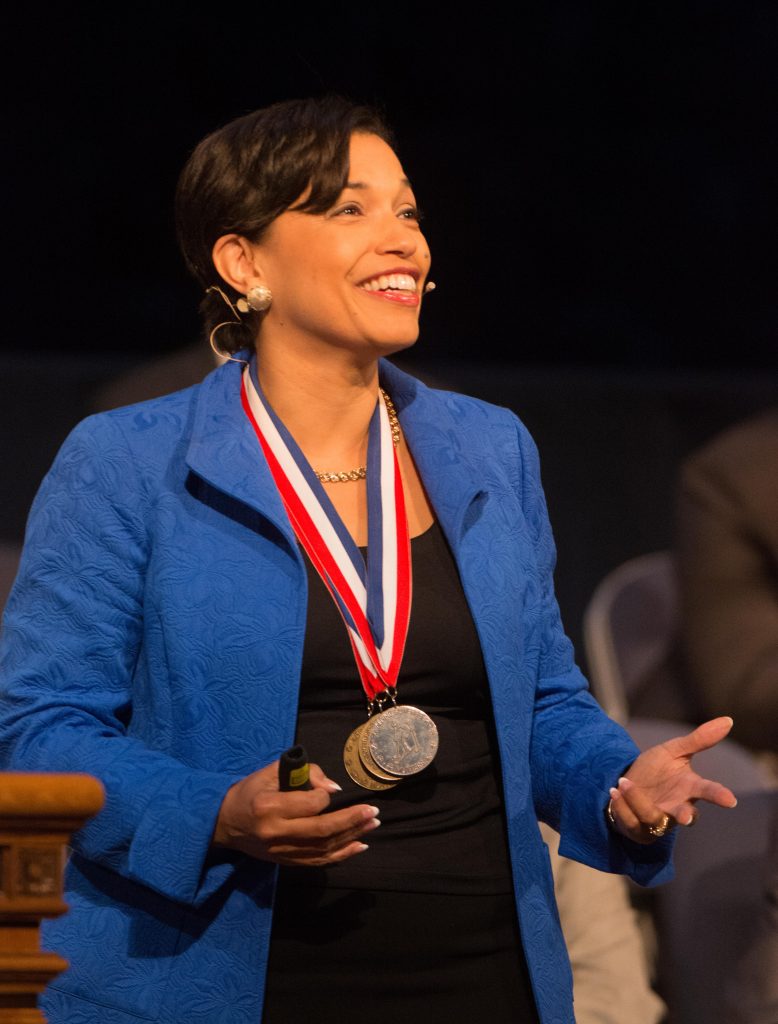Bonnie St. John gave BYU’s forum address Tuesday, Nov. 15, about her trials and successes throughout her life as an amputee. St. John is a Rhodes scholar, a best-selling author and the first African-American to win medals in the Winter Paralympics. She is currently CEO of the Blue Circle Leadership Institute.

St. John began her address by defining courage as “going towards the problem instead of away from it” and leadership as “helping people to see what isn’t there yet and help them build it.” She said courageous leadership is not the easy way to do things.
St. John then expressed her admiration for BYU students, saying they make many sacrifices to be here.
“I am in awe of the self-discipline that it takes and your choice to take the high road,” she said.
She went on to say leadership is so critical in the United States right now, and she is betting on people who want to do the right thing to make a difference. If anyone can be a leader in this country, she said, it’s the people who can make good choices.
St. John told her own story of not taking the easy road. She spoke of how she grew up in San Diego and had to save every penny to go skiing on the weekends, a sport she had grown to love. She learned about Burke Mountain Academy, a boarding school in Vermont dedicated to improving young skiers while they receive their education. The tuition was very expensive, and St. John said she recalls looking at her brother.
“This is impossible,” she said. “I might as well get started.”

She began writing away for sponsors and was able to get a partial scholarship to Burke Mountain Academy. She didn’t have enough money for tuition when September came though and called the headmaster to explain. He offered her a full-tuition scholarship after realizing how much work she had put into fundraising.
St. John faced many obstacles even after getting into the school. She broke her ankle early in the fall, and she broke her artificial leg right after her ankle healed. Other difficulties arose as she struggled to keep up with only one leg.
“This is my chance for greatness,” St. John said when asked why she didn’t quit. “Finding greatness in yourself is uncomfortable, but when has anything great come from being comfortable?”
St. John then spoke about how divided the nation is and said it is important to accept other people and cultures. She said she admired LDS missionaries in this effort and the way LDS people accept other cultures. She said BYU students are uniquely placed to be leaders in this country.
St. John said it is important to acknowledge that racism still exists so people can find a way to change it.
She posed a solution she called micro-affirmations: making an effort to continually reach out to minorities and those who are different. She specifically addressed the LDS Church, saying it is important to reach out to new members. She said she would love to see more members of the Church around the world.
St. John finished her address by saying people’s voices needs to match their actions. She encouraged BYU students to be courageous leaders.
“Courageous leaders need a community of champions,” she said. “When that happens, everybody goes further.”




